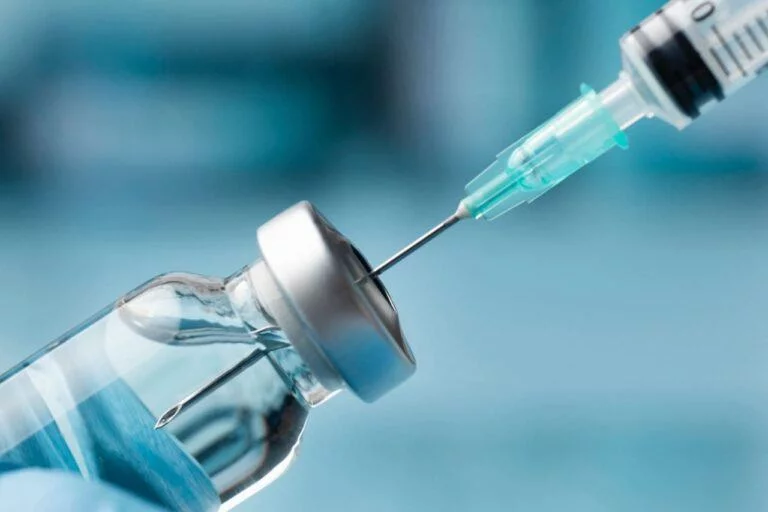Peptide therapy has gained significant attention in the realm of health and wellness due to its potential to enhance various bodily functions. This innovative treatment involves the use of specific short chains of amino acids, known as peptides, which act as signaling molecules to trigger desired biological processes. Among its many applications, Peptide Therapy in Abu Dhabi is increasingly popular among individuals seeking efficient ways to accelerate muscle recovery, improve strength, and optimize physical performance. This therapy works by stimulating cellular activity, promoting tissue repair, and reducing inflammation, thereby facilitating a faster and more effective recovery process after intense physical activity or injury.
How Peptides Facilitate Muscle Repair and Growth
Activation of Cellular Repair Mechanisms
Peptides play a crucial role in activating cellular repair mechanisms essential for muscle recovery. They stimulate the production of growth factors that promote tissue regeneration and repair damaged muscle fibers. These signaling molecules enhance the body's natural ability to heal, making recovery quicker and more efficient. By supporting this process, peptides help individuals return to their training routines sooner and with improved muscle function.
Enhancement of Protein Synthesis
One of the core functions of peptides in muscle recovery is boosting protein synthesis. This process involves the creation of new proteins necessary for muscle repair and growth. Peptides act by upregulating pathways that favor muscle protein accumulation, thereby improving muscle mass and strength over time. This effect is particularly beneficial for athletes and fitness enthusiasts aiming to maximize muscle gains and recover from strenuous workouts more effectively.
Reduction of Inflammation and Pain
Post-exercise inflammation and soreness are common challenges during muscle recovery. Certain peptides possess anti-inflammatory properties that help reduce swelling and pain in muscle tissues. By modulating inflammatory responses, peptides contribute to decreased discomfort and facilitate a smoother recovery process. This not only enhances comfort but also minimizes downtime between training sessions.
Specific Peptides That Support Muscle Recovery
BPC-157
BPC-157 is widely recognized for its potent healing properties, especially in tissue repair. It promotes angiogenesis, the formation of new blood vessels, which improves blood flow to injured muscles. Enhanced blood supply delivers vital nutrients and oxygen, accelerating healing and reducing recovery time.
Growth Hormone-Releasing Peptides (GHRPs)
GHRPs stimulate the natural secretion of growth hormone, a key player in muscle regeneration and repair. Elevated levels of growth hormone support increased muscle synthesis, improved recovery, and overall physical performance.
TB-500 (Thymosin Beta-4)
TB-500 is known for its ability to promote cell migration, angiogenesis, and tissue regeneration. It supports the repair of damaged muscle tissues and reduces inflammation, making it an effective option for post-injury recovery.
Practical Benefits of Peptide Therapy for Muscle Recovery
Accelerated Healing Process
By targeting multiple pathways involved in tissue repair, peptide therapy significantly shortens the healing timeline. This allows athletes and active individuals to return to their training schedules more quickly, maintaining momentum in their fitness routines.
Improved Muscle Strength and Endurance
Regular use of certain peptides can lead to increased muscle mass and strength, enhancing overall physical performance. This is especially advantageous for athletes aiming to push their limits and improve endurance.
Enhanced Recovery from Injuries
Peptides support the regeneration of damaged tissues, making them valuable in managing sports injuries. They help restore muscle integrity faster, reducing the risk of re-injury and ensuring long-term muscular health.
Reduction in Exercise-Related Fatigue
By improving cellular energy production and reducing inflammation, peptide therapy can decrease feelings of fatigue after intense workouts. This leads to better performance and quicker recovery between training sessions.
Integrating Peptide Therapy into Your Recovery Regimen
Consultation and Personalized Protocols
A tailored approach is essential for optimal results. Healthcare professionals assess individual needs, fitness levels, and recovery goals to design personalized peptide regimens that align with specific physical activities and recovery requirements.
Combining with Proper Nutrition and Rest
While peptide therapy offers significant benefits, it is most effective when combined with adequate nutrition, hydration, and rest. Proper diet rich in proteins and essential nutrients supports the muscle repair process initiated by peptides.
Regular Monitoring and Adjustment
Monitoring progress and adjusting peptide protocols as needed ensures sustained benefits. Healthcare providers may modify dosages or introduce new peptides based on ongoing recovery and performance metrics.
The Future of Peptide Therapy in Muscle Recovery
Emerging research continues to unlock new possibilities for peptide therapy in sports medicine and general wellness. Innovations aim to develop more targeted peptides with enhanced efficacy and fewer side effects. As understanding deepens, peptide therapy is poised to become a mainstream strategy for muscle recovery and athletic performance enhancement.
FAQs about Peptide Therapy and Muscle Recovery
What are the primary benefits of using peptides for muscle recovery?
Peptides support faster tissue repair, increase muscle strength, reduce inflammation, and help manage exercise-related soreness, leading to more efficient recovery.
How long does it take to see results from peptide therapy?
Results can vary depending on individual factors and specific peptides used, but many individuals notice improvements in recovery and muscle function within a few weeks of consistent therapy.
Are there any restrictions or considerations when starting peptide therapy?
Consultation with a healthcare professional is essential to determine suitability, establish proper protocols, and ensure safe integration with other health routines.
Can peptide therapy enhance athletic performance beyond recovery?
Yes, certain peptides not only aid recovery but also promote muscle growth, improve endurance, and support overall physical performance when used appropriately and under medical supervisio
